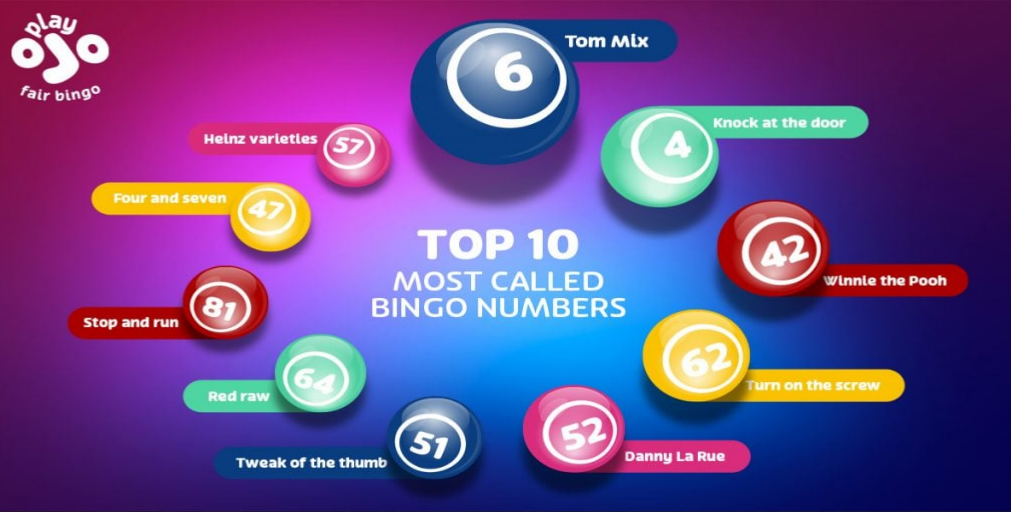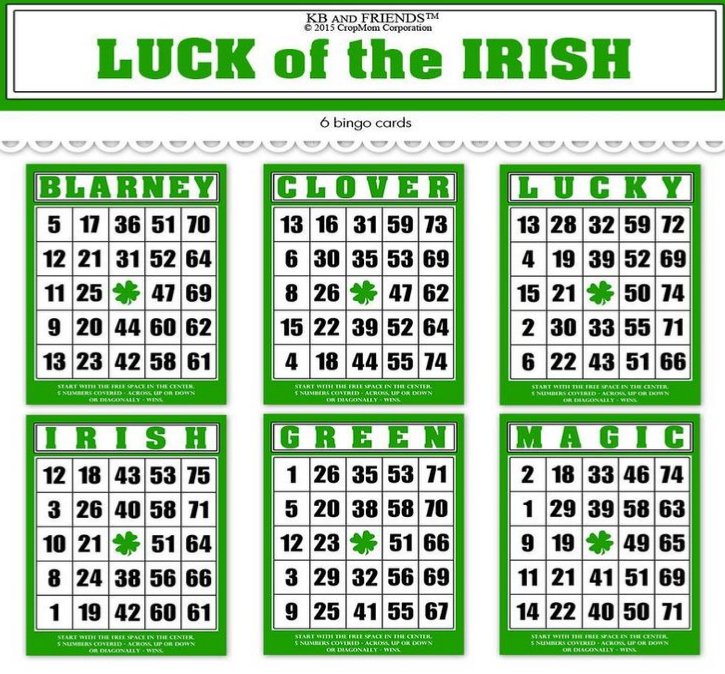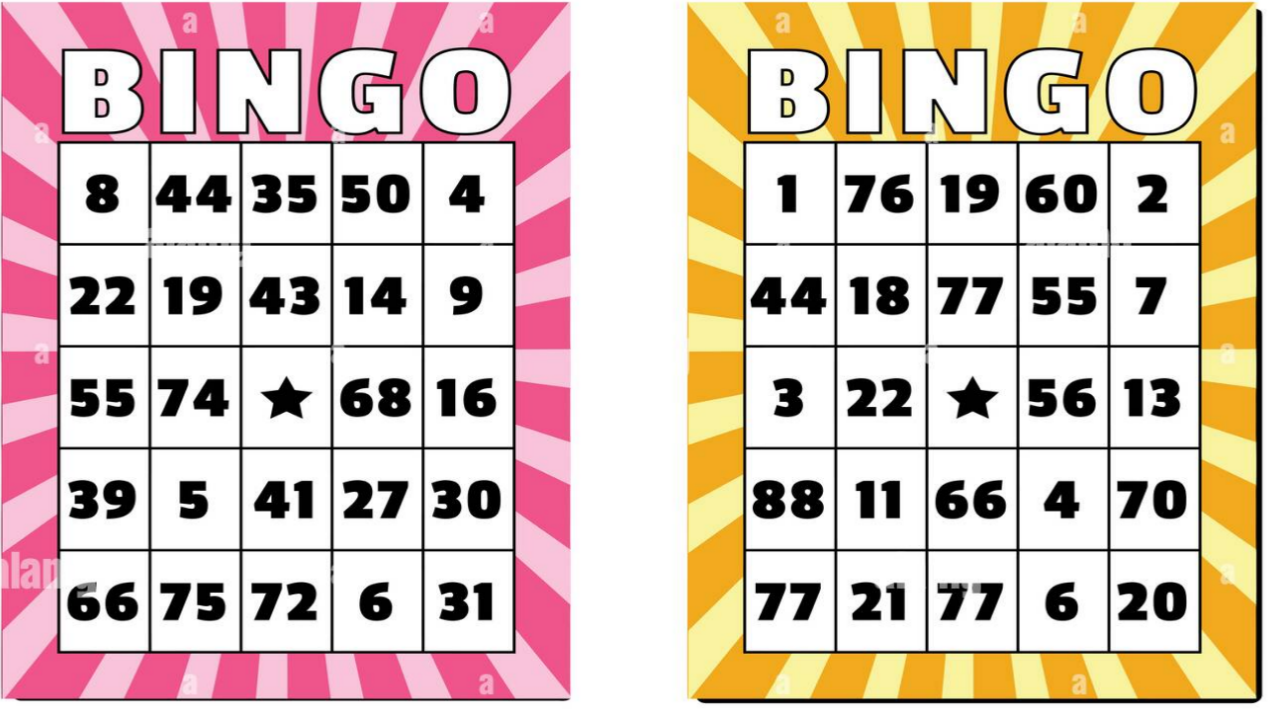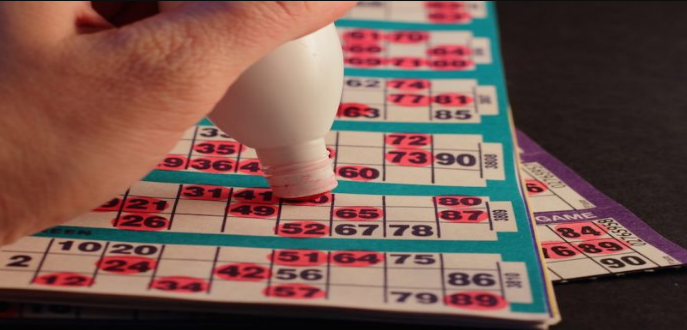The luckiest number in bingo varies by personal and cultural beliefs, with no universally agreed number.
Understanding Bingo Numbers
Bingo, a game deeply entrenched in our social fabric, carries an essence of randomness and excitement with each number call. Diving into the world of bingo numbers can provide fascinating insights into how the game has evolved and the unique attributes associated with each number.

How Bingo Numbers Are Generated
Every bingo game begins with the generation of numbers. Traditionally, in land-based bingo halls, a mechanical blower mixes bingo balls, ensuring complete randomness. Modern online platforms, however, rely on Random Number Generators (RNG) to ensure fairness.
- Mechanical Methods: Earlier methods incorporated blowers or rotating cages. Balls, marked with numbers, are mixed and drawn at random.
- Electronic Methods: With the advent of online bingo, RNGs became a staple. They are algorithms ensuring that every number has an equal chance of being drawn. This digital shift maintains the game’s integrity in the virtual space.
Traditional Bingo Calls and Their Meanings
Bingo calls, also referred to as ‘bingo lingo’, add a fun, rhythmic twist to the game. These catchy phrases have been around for decades, representing each number on the bingo card with a memorable phrase.
- “Two Little Ducks” – 22: The number 22 is visually similar to two ducks sitting next to each other, hence the catchy phrase.
- “Knock at the Door” – 4: This rhyme is purely for the sound, with “four” rhyming with “door”.
- “Legs Eleven” – 11: This one is more visual; the number 11 looks like a pair of legs.
- More Calls: There are many more of these traditional calls, and many of them have interesting backstories. To dive deeper, a visit to the bingo calls Wikipedia page would be enlightening.
Understanding these calls can not only make the game more enjoyable but also sheds light on its rich history and the cultural nuances embedded within.
The Concept of Luck in Bingo
At the heart of every bingo game lies the unpredictable force of luck. While strategy plays a role in some games, bingo remains one where luck reigns supreme. Players from around the world cling to their rituals, charms, and beliefs in the hopes of swaying fortune in their favor. To truly appreciate the role of luck in bingo, we need to understand the cultural and psychological significance it carries.

Cultural Perspectives on Lucky Numbers
Different cultures around the world hold unique beliefs about certain numbers, deeming them to be lucky or unlucky. These beliefs often stem from linguistic, historical, or religious reasons.
- China: In Chinese culture, the number 8 is considered particularly lucky because it sounds like the word for “wealth” or “prosper”. Conversely, the number 4 is often avoided as it sounds like the word for “death”. Many players of Chinese descent might favor bingo cards with more eights. Dive into the intricacies of Chinese numerology on Wikipedia for a broader understanding.
- Western Cultures: The number 7 often stands out as a symbol of luck, possibly due to its religious significance in Christianity. On the other hand, 13 is a number many deem unlucky, leading to superstitions like skipping the 13th floor in buildings.
- India: Number 9 has a special significance in India, rooted in its religious and astrological systems. It’s often seen as a symbol of completeness and spiritual enlightenment.
How Luck Factors into Bingo
While bingo is undeniably a game of chance, many players believe they can influence their luck. Whether it’s using a favorite dabber, sitting in a particular spot, or choosing specific bingo cards, players have their rituals.
- Rituals and Charms: Some players wear lucky charms or perform pre-game rituals. These practices, though not scientifically proven to influence the game’s outcome, offer psychological comfort.
- Card Selection: Even in a game dominated by chance, some seasoned players believe in picking cards with specific patterns, numbers, or arrangements, thinking they’re more “lucky.”
- The Role of Serendipity: Occasionally, luck plays out in surprising ways. Stories abound of players winning on their first game or on special occasions, reinforcing the idea that serendipity can strike when least expected.
In the end, while the outcome of bingo is determined by random number generation, the allure of luck adds an element of mystique and excitement, ensuring players come back for more.
Popular Lucky Numbers Across Various Cultures
Numbers, often seen as mere mathematical symbols, hold profound significance in cultures worldwide. From historical events to linguistic quirks, the reverence or aversion to certain numbers has shaped rituals, architecture, and even games like bingo. To appreciate this fascinating interplay between numbers and cultures, we’ll journey through some of the most universally recognized lucky numbers.

The Number 7: Universally Lucky?
The number 7 holds a special place in the hearts of many around the world. Its repeated appearance in religion, nature, and mythology has cemented its status as a universally auspicious number.
- Religious Significance: In Christianity, the world was created in six days, with the seventh being a day of rest. This idea of completeness and divinity associated with 7 permeates many biblical stories.
- Nature’s Preference: The seven colors of the rainbow, the seven continents, and the seven seas. Nature, too, seems to have a fondness for this number.
- Cultural Celebrations: Many societies have rites of passage or festivals revolving around the seventh day, the seventh month, or after seven years.
Chinese Lucky Numbers and Bingo
Chinese numerology is a complex system where sounds of numbers in relation to words can dictate their fortune.
- The Number 8: As mentioned earlier, 8 is revered in Chinese culture because it phonetically sounds like “prosperity”. It’s common to see this number being chosen in bingo, car license plates, or phone numbers.
- Avoiding the Number 4: The phonetic similarity between the words for “four” and “death” makes this number less favorable. In the context of bingo, some players might avoid cards dominated by this number.
- Embracing 9: The number 9, sounding like the word for “long-lasting”, is often associated with longevity and eternity. Learn more about the influence of these numbers in the Chinese culture on Wikipedia.
Western Superstitions and Bingo Numbers
Western cultures, while diverse, share some commonalities in number superstitions, many of which spill over into games like bingo.
- Lucky Number 7: Echoing sentiments from earlier, the west too holds number 7 in high esteem. It’s not uncommon to see players hoping for this number during a bingo game.
- The Unlucky 13: Considered inauspicious, many buildings skip the 13th floor, and some bingo players might hesitate when they see this number. The origins of this superstition are varied, with some tracing it back to Norse mythology or the Last Supper in Christian beliefs.
- Combination Numbers: Some believe that numbers combined with 7, like 27 or 77, carry its lucky essence. Similarly, numbers that visually or phonetically resemble other lucky symbols might be chosen more often in bingo.
While the rationale behind these beliefs varies, the fascination with lucky numbers remains a global phenomenon, influencing choices in daily life and in leisurely games like bingo.
Empirical Data: The Real ‘Lucky’ Numbers
While superstitions and cultural beliefs often dictate players’ choices in games of luck, many turn to empirical data for a more rational approach. By delving deep into the statistics of past bingo games, can we truly identify numbers that appear more frequently? And does this translate to a universally “lucky” number?
Statistical Analysis of Bingo Wins
When we talk about statistics in bingo, it’s crucial to remember that if the game is fair, each number has an equal chance of being drawn. But this doesn’t stop enthusiasts and statisticians from analyzing past games.
- Patterns in Data: Over a sufficiently long period, each number should theoretically have an equal frequency. However, in the short term, some numbers might appear more often than others. It’s these short-term patterns that intrigue many.
- Confirmation Bias: Players might remember wins associated with specific numbers and forget the times those numbers didn’t yield success. This confirmation bias can give the illusion that certain numbers are luckier.
- The Gambler’s Fallacy: This is the belief that if something happens more frequently than usual during a given period, it will happen less frequently in the future, or vice versa. For instance, if a number hasn’t been drawn in a while, players might think it’s “due” soon. This fallacy is a common trap in games of chance.
Is There Truly a ‘Lucky’ Number?
So, what do the statistics say? Is there a magic number in bingo that guarantees success?
- The Nature of Randomness: Random events, by definition, lack patterns. While in the short term, there might be perceived streaks or droughts; over a more extended period, things usually balance out.
- Embracing Uncertainty: What makes games like bingo so enthralling is their inherent unpredictability. If one number were genuinely luckier, it would detract from the game’s charm.
- The Allure of the “Hot Number”: Sometimes, news outlets or bingo communities might report a “hot number” that’s been drawn more frequently in recent games. While intriguing, it’s crucial to remember that each game is independent, and past outcomes don’t influence future ones.
In conclusion, while analyzing empirical data can be a fascinating exercise, bingo remains a game of chance. Each number’s potential to be drawn is equal, making every game a fresh start and a new opportunity for players to test their luck.

The Psychological Impact of Lucky Numbers
Numbers, simple as they might seem, possess a profound psychological power. In games like bingo, where players are on the edge of their seats, waiting for the next number to be called, these beliefs in luck and superstition amplify. The numbers printed on bingo cards are more than just digits; they often symbolize hope, anticipation, and sometimes even a connection to personal events or cultural beliefs. Let’s explore the psychological intricacies of how lucky numbers influence both choices and gameplay.
How Players Choose Their Cards
The act of selecting bingo cards, for many, is more than just a random choice. It’s a process imbued with personal meaning and superstitions.
- Personal Dates: Birthdays, anniversaries, and other memorable dates often make their way onto bingo cards. Players feel a personal connection to these numbers, which intensifies the excitement when they are drawn.
- Repeating Numbers: Numbers that have brought success in the past tend to be chosen again. It’s a classic example of the recency bias, where players give more weight to recent experiences.
- Cultural Influences: As discussed earlier, cultural beliefs heavily dictate number choices. For some, avoiding the number 13 is a must, while for others, 7 or 8 are essential inclusions.
Influence on Gameplay and Strategies
Even in a game largely determined by luck, the belief in lucky numbers influences how players approach the game and the strategies they employ.
- Hedging Bets: Players often diversify their chosen numbers across multiple cards. It’s a strategy that psychologically provides a feeling of increased odds, even if the actual chances remain unchanged.
- Pattern Recognition: Humans are naturally inclined to recognize patterns. In bingo, players might think they see patterns in the drawn numbers, even if they are randomly generated. This phenomenon, known as apophenia, can influence their card choices in subsequent games.
- Rituals and Habits: Beyond the numbers, players might adhere to certain gameplay rituals, like using a specific marker or sitting in a favorite spot. These habits provide a sense of control in a game dominated by randomness.
In essence, while the balls drawn in bingo are random, the psychological and emotional journey players embark upon is deeply personal and complex. The beliefs in lucky numbers add depth to the game, turning it from a simple pastime to an experience rich with meaning and anticipation.

